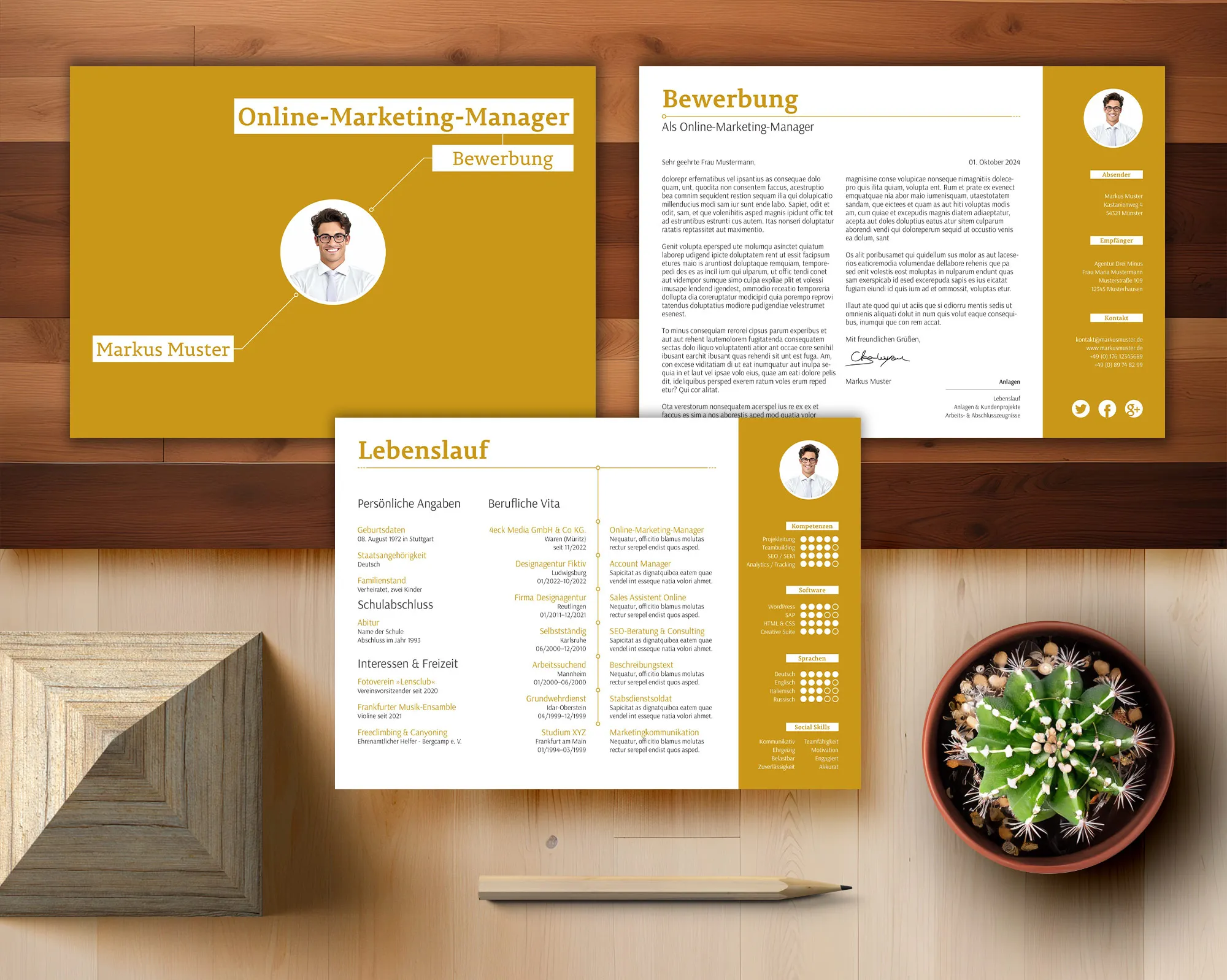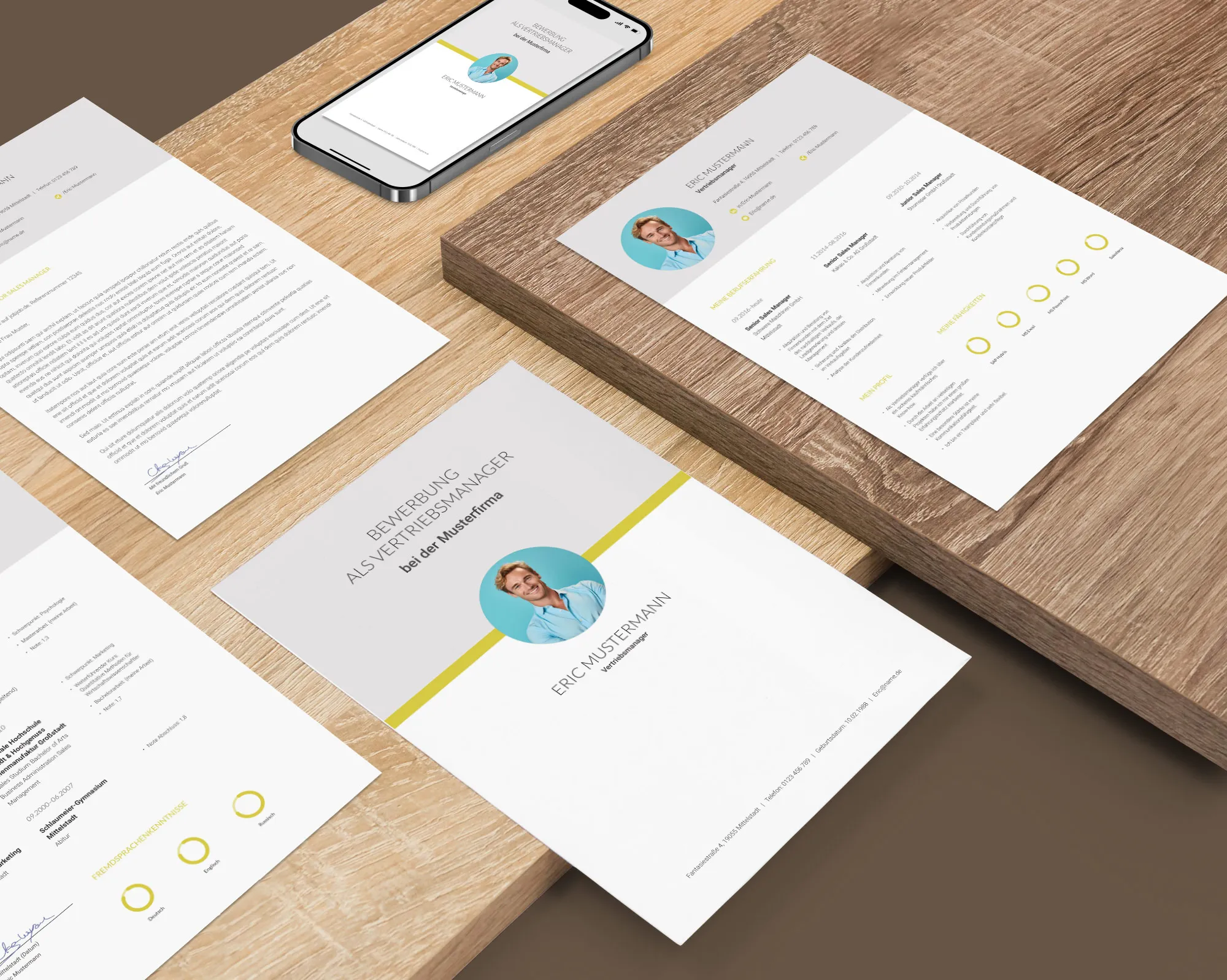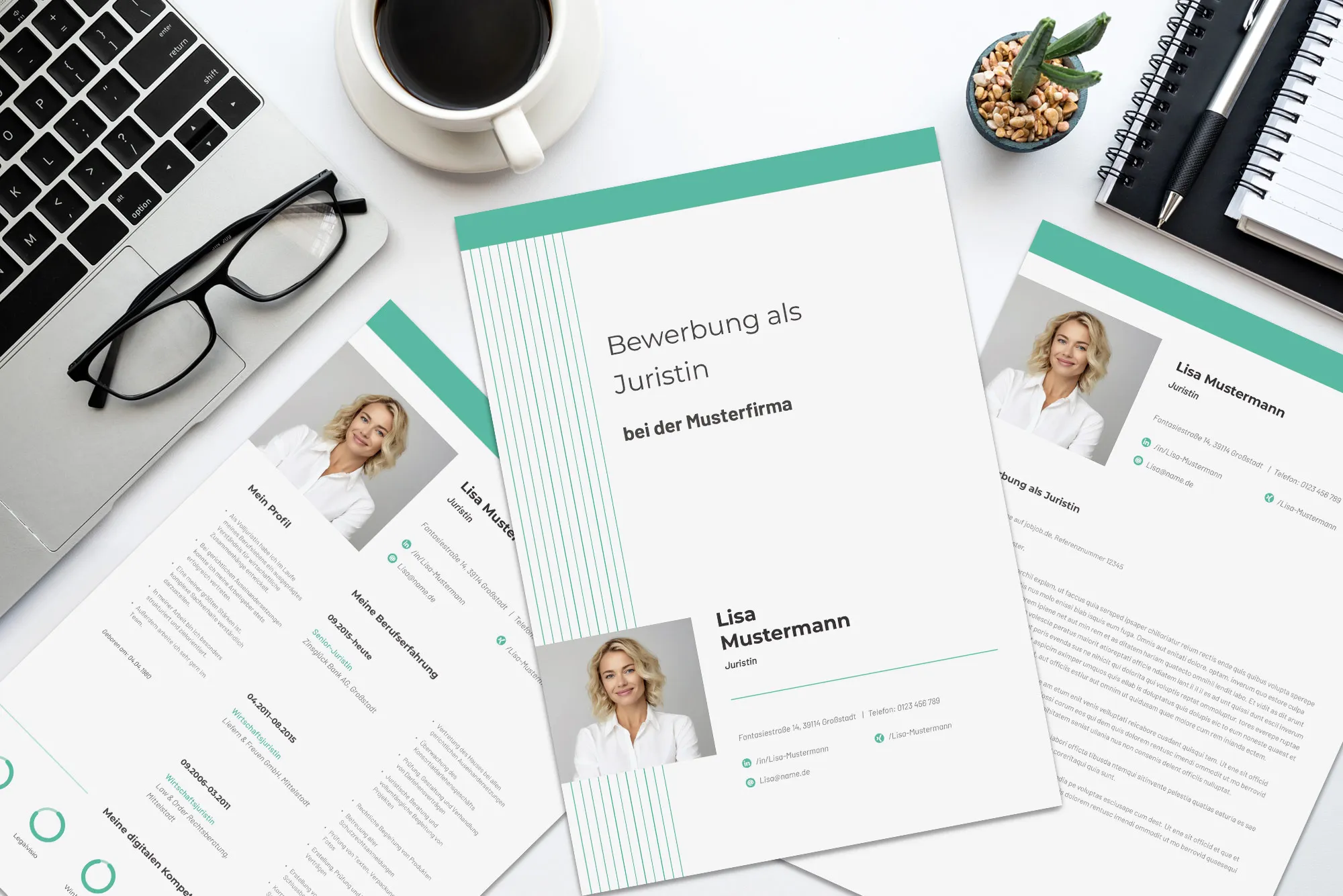Materials Tester: Template for a job application with CV
Imagine analyzing and evaluating various materials in a state-of-the-art laboratory – that's exactly what awaits you as a materials tester! Are you ready to plan the next step in your career? Then we have the right information for your application as a materials tester. Here you will find valuable tips for your resume and solid advice on how to perfect your cover letter. We provide you with templates and samples for your cover letter as well as your resume, so that you can present yourself in the best possible way. Let us support you and start successfully in an exciting and promising career as a materials tester.
Becoming a Materials Tester – Use this sample text to formulate your cover letter
Feel free to be inspired by our sample cover letter for the application as a materials tester. This template supports you with suitable formulations for your cover letter in this technical profession. Remember to always focus on the requirements of the job advertisement of the company. Skillfully combine your previous skills and experiences with the required qualifications and characteristics from the job description. It is important that the recruiter sees that you are not only professionally competent, but also truly interested in the position. This will increase your chances of being invited to an interview.
Dear [Ms./Mr.] [Last Name],
After an extensive research about your company and its projects, I am impressed by the innovative methods and high quality standards that you set in materials testing. It is precisely for this reason that I would like to become a part of your team.
During my training as a materials tester, I gained extensive knowledge in material science and non-destructive testing. I was particularly excited about working with modern testing methods and precisely analyzing material properties. My careful work style and ability to stay on top of things even in stressful situations made me a reliable member of my team.
One particular project I successfully completed was the testing of composite materials for aerospace. In this project, I was able to demonstrate not only my technical skills but also develop creative solutions within the team. This experience showed me how important accuracy and teamwork are in our field.
I am convinced that my passion for materials testing and my previous experience perfectly match the requirements of your open position. I would like to learn more about your current challenges and projects in a personal conversation.
Best regards
[Your First Name] [Your Last Name]
Do you like the sample? You are welcome to use it as a template for your application as a materials tester and customize it. Don't forget to add your personal information and the full recipient's address, as well as the current date. If you know the name of the contact person, it is always a plus to address them directly, for example, with: Dear Mr. Meier.

To the point: Optimize your cover letter for your application
It is important to tailor the given template for the cover letter individually to your own professional situation and qualifications. This way, you make your application more personal and stand out from other candidates. Make sure to include specific experiences and skills from your previous work life to show that you possess the necessary competencies for the position as a materials tester.
- Material analysis: Examination and evaluation of various materials based on their physical and chemical properties.
- Quality control: Conducting tests and inspection procedures to ensure the quality of materials and identify defects.
- Documentation: Recording test results and creating reports to be shared with superiors and clients.
- Failure analysis: Identifying defects and assisting in root cause analysis to prevent future errors.
- Prototype testing: Testing new materials and technologies at the prototype stage to evaluate their suitability for mass production.
- Equipment maintenance: Regular inspection and maintenance of testing equipment to ensure their proper functioning.
- Workplace safety: Compliance and monitoring of safety regulations and guidelines in the laboratory and other workspaces.
- Training: Orienting and training new staff and apprentices in the areas of material testing and quality control.
By adapting your cover letter to your personal experiences and knowledge, you can better highlight your strengths. The knowledge you have gained in the listed areas provides you with a solid foundation for a successful career as a materials tester. Use the mentioned points and supplement them with your own experiences to create a compelling cover letter.

Industries that require your skills as a materials tester
As a materials tester, you have the great opportunity to work in a variety of industries and gain diverse experiences. Your task is to test the properties and qualities of materials to ensure their safety and performance.
- Automotive industry: You examine the materials used in vehicles to ensure their safety and durability.
- Aerospace: In this highly precise industry, you inspect the materials used in airplanes and spacecraft to meet strict safety standards.
- Construction industry: You test building materials like concrete, steel, and plastics to ensure they withstand the stresses that affect building structures over time.
- Medical technology: In this industry, you analyze the materials used in medical devices and implants to verify their safety and functionality.
- Electronics: You test the various materials used in the manufacturing of electronic components and devices to ensure their functionality and durability.
- Shipbuilding: In this area, you examine the materials used in ships to withstand the extraordinary stresses of the marine environment.
- Renewable energies: You analyze the materials of wind turbines, solar cells, and other energy technologies to optimize their performance and lifespan.
As you can see, as a materials tester, you have numerous opportunities in various industries. From the automotive industry to medical technology and renewable energies - there is a demand for your expertise everywhere. This keeps your workday not only exciting but also varied.

Practical tips for your resume in the application
When applying for a position as a materials tester, it is important to create a convincing resume that clearly highlights your qualifications and experiences in the field of materials testing. A well-structured and easily understandable resume can make a significant first impression on employers.
- Vocational education: List your completed training as a materials tester or a comparable qualification. This forms the basis of your technical expertise and shows that you have the necessary knowledge to be successful in this profession.
- Professional experience: Describe your previous activities in the field of materials testing. Highlight special projects or tasks in which you were significantly involved. Your professional experience demonstrates that you have already proven what you are capable of in practice.
- Technical knowledge: Mention your knowledge of various testing procedures and techniques, such as non-destructive testing (NDT), microscopic analysis, and mechanical tests. Your technical knowledge is a crucial factor for the quality of your work.
- Precision and diligence: Emphasize your ability to work carefully and accurately, as these are essential qualities of a materials tester. Provide examples of how you have applied these skills in professional practice to underline your reliability and accuracy.
- Teamwork and communication: Mention how you successfully work and communicate within a team. It can also be helpful if you can cite specific examples of your collaboration with colleagues or other departments. These skills are important to successfully complete projects and ensure a smooth workflow.
A well-structured resume for the profession of a materials tester should highlight your vocational education, professional experience, technical knowledge, as well as your skills for precise work and teamwork. By presenting these points clearly and concisely, you can increase your chances of a successful application.
So that you don't have to worry about the design, layout, and structure of your application as a materials tester anymore: Grab our application templates and simply adjust them in Word or another program:
From Matthias Petri
